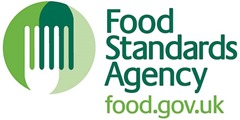Giving consumers a voice
 Maria Jennings, Director of the Food Standards Agency in Northern Ireland, outlines the FSA’s commitment to “always put consumers first in everything we do” and how it plans to strengthen that pledge going forward.
Maria Jennings, Director of the Food Standards Agency in Northern Ireland, outlines the FSA’s commitment to “always put consumers first in everything we do” and how it plans to strengthen that pledge going forward.
During our recent consultation on the FSA’s strategy for 2015-2020, our stakeholders emphasised the need for a strong regulator, independent of the food industry, to act as a powerful and well-informed champion for consumers. Food businesses have told us that such a regulator protects the reputation of UK food – both for domestic consumers and the international export market.
Consumers tell us that they feel powerless in their relationship with food: we want them to be and feel powerful and able to contribute effectively to shaping a food system that protects their interests and respects their rights. As a result, our regulatory approach will underpin the delivery of both the right to be protected and the right to be informed.
As we develop specific proposals, we will talk with a range of stakeholders to help us understand the benefits, costs, risks, opportunities and any potential unintended consequences. We will focus on ensuring that businesses meet their responsibilities – whether by supporting them, incentivising them or compelling them to do so.
Of course, regulation is a means to an end, not an end in itself – and it is not the only way of protecting consumers’ interests when it comes to food. We will also work directly with consumers, government departments and international bodies to support consumer interests.
To secure better outcomes for consumers and businesses, this approach will represent a significant shift in focus: from repeating largely routine, programmed work, to a more intelligence, risk and impact-driven approach, using all available flexibilities within the regulatory framework. This will actively seek to identify emerging risks and gaps in knowledge, as well as identified areas of concern and non-compliance.
Our proposed framework of principles is to:
• align incentives and disincentives so that food businesses are encouraged to do the right thing for consumers;
• move towards a truly risk-based regulatory approach;
• work with district councils and businesses to develop complementary and alternative delivery approaches and funding models;
• build a regulatory ‘toolbox’ containing a broad range of interventions including sanctions;
• seek to move to a system that requires businesses to demonstrate and provide evidence of compliance with food law;
• identify where there is more flexibility in how we deliver our regulatory role in food law; and
• identify our priorities for regulatory reform and how to take them forward.
The price of food is affected by the costs of regulation and compliance too – so we have a responsibility to keep the related costs to a minimum and remove food law which does not deliver benefits for consumers. It is clearly defined in law that achieving compliance is the responsibility of business – and not that of the FSA, Department of Agriculture and Rural Development or district councils. Our role is to verify that food businesses are complying with their legal obligations to produce food that is both safe – and what it says it is.
 Food Standards Agency NI
Food Standards Agency NI
10a-c Clarendon Road
Belfast, BT1 3BG
Tel: 028 9041 7700
Email: infofsani@foodstandards.gsi.gov.uk
Read the full document ‘Developing the Future Regulatory Strategy’ at www.food.gov.uk/sites/default/files/fsa-150104.pdf





